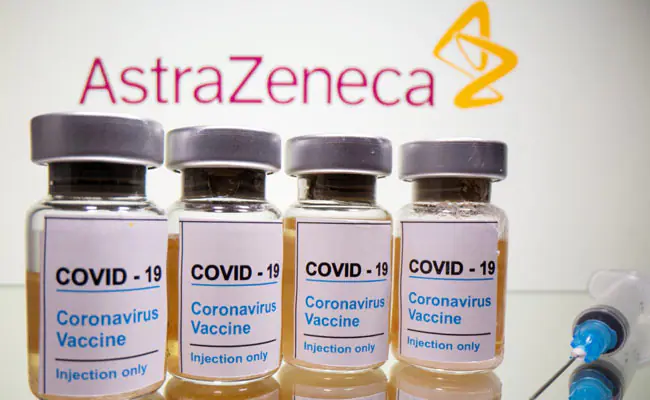April 30 (Punjab Khabarnama) : AstraZeneca (AZ), UK’s pharmaceutical giant, has admitted its Covid vaccine, sold under the brand name of Covishield in India, in ‘very rare cases’ can cause a blood clot-related side effect, according to court papers being quoted in the UK media. According to media reports, the admission was made in a legal document submitted to the High Court in London in February for a group action being brought by 51 claimants.
The pharmaceutical company has admitted that the vaccine developed with the University of Oxford to protect against Covid-19 may cause Thrombosis with Thrombocytopenia Syndrome (TTS).
“It is admitted that the AZ vaccine can, in very rare cases, cause TTS. The causal mechanism is not known. Further, TTS can also occur in the absence of the AZ vaccine (or any vaccine). Causation in any individual case will be a matter for expert evidence,” The Daily Telegraph quoted the legal document as stating.
What is Thrombosis with Thrombocytopenia Syndrome?
“Vaccine induced thrombosis with thrombocytopenia syndrome (TTS) is an extreme immunological reaction that occurs after Covid-19 immunization. Initially thought to be associated with viral-vector-based vaccines like Johnson & Johnson/Janssen and AstraZeneca-Oxford, it was found that the side effect may also be seen with covishield vaccine. The immunological reaction leads to the activation of platelets and the coagulation system and can cause venous or arterial thrombosis and in certain circumstances can lead to secondary haemorrhage,” says Dr Viswesvaran B, Consultant Interventional Pulmonology and Sleep Medicine, Yashoda Hospitals Hyderabad.
“The finding of Thrombosis with Thrombocytopenia Syndrome (TTS), an unusual but notable adverse event that may be linked to the Covishield vaccine, has opened a new chapter about Covid-19 vaccination. As a cardiologist today, I try to understand the intricacies of cardiovascular health, which necessitates accurate and thorough investigation of this issue. My objective is to clarify the foundations of TTS, its clinical implications, and the vital role that vigilant monitoring plays in the vaccination landscape,” says Dr Vanita Arora, Senior Consultant Cardiac Electrophysiologist & Interventional Cardiologist at Apollo Hospital, Delhi.
Symptoms of TTS
Dr. Viswesvaran says incidence of TTS among vaccine recipients appears to be higher even amongst younger individuals and recipients of a first dose and can manifest as clotting at unusual sites and sometimes with haemorrhage. “Persistent and progressively worsening headache in addition to focal neurological symptoms like visual disturbances are described as early red flags for suspecting VITT in patients,” adds the expert.
Elaborating on the symptoms Dr Vishwesvaran says, “majority of these patients develop thrombosis in the lower extremities and lungs but can also develop clots at unusual sites including blood vessels supplying gut like splenic, portal or mesenteric, adrenal, cerebral, and even ophthalmic veins.”
“We have been noticing that a lot of people are coming with complications of covid per se and also complications of vaccination also particularly covishield. Numerous case reports and also cases we have seen in our institute, that a lot of patients developed strokes and cardiac complications like arrhythmias and cardiac arrest and failures and also diabetes. One of these complications is thrombosis with thrombocytopenia syndrome which states that people develop blood clots in blood vessels of vital organs which is also associated with low platelet counts. Symptoms are like severe headache, stroke, abdominal pain, swelling of legs and severe breathlessness,” says Dr Gopi Krishna Yedlapati, Sr. Consultant Interventional Pulmonologist & Clinical Director, Yashoda Hospitals Hyderabad.
Diagnosing TTS
Dr Vanita Arora says from a clinical standpoint, it is very challenging to diagnose TTS and necessitates a high level of suspicion and acute clinical judgement, particularly in those who have received the Covishield vaccine.
“Patients may experience a broad spectrum of symptoms, ranging from severe headaches and particular neurological deficits to more subtle indications of thrombotic episodes. The co-occurrence of thrombosis and thrombocytopenia, however, is what sets TTS apart and emphasises the diagnostic conundrum that medical practitioners face. Differential diagnosis must account for a wide range of thrombotic and thrombocytopenic disorders. This necessitates a comprehensive evaluation and careful application of diagnostic modalities, including imaging tests, laboratory analyses, and haematological assessments,” she says.
How can it be treated
“When treating patients with TTS, cardiologists need to carefully consider the dangers of thrombosis and bleeding issues. In order to lessen the burden of thrombosis, anticoagulation is still necessary, but only after a thorough assessment of each patient’s particular risk profile and supporting documentation. To learn more about the effects of adjuvant drugs including intravenous immunoglobulins, platelet transfusion, and corticosteroids on the immune response connected to the pathophysiology of TTS, more research is required. The development of a cohesive treatment plan tailored to the requirements and clinical trajectory of TTS patients requires interdisciplinary collaboration between cardiologists, haematologists, neurologists, and other allied health specialists,” says Dr Arora.

